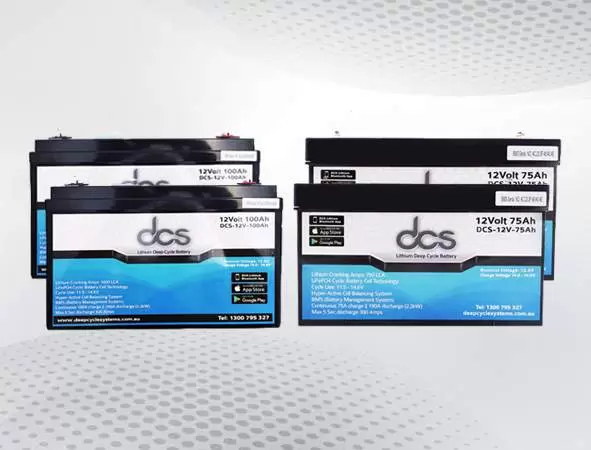Lithium batteries are an excellent choice for solar installations. They’re less expensive than lead-acid and have a longer life cycle than their nickel counterparts. A Lithium solar battery is also lighter and smaller than most other types of batteries, which means you can install more capacity on your roof without increasing the size of the racking system. Lithium also has a higher voltage and faster recharge rates, which makes it ideal for fast-charging applications like electric vehicles or computer servers.
Six Benefits Of Lithium Ion Solar Batteries
Lithium Solar Battery Has A Longer Life Cycle
Compared with other rechargeable batteries, they have a longer life cycle. They are also known to be more durable and can withstand more charge cycles before they start to degrade. However, this doesn’t mean you should always use your battery at total capacity. Doing so can shorten its lifecycle and reduce its overall lifespan significantly.
Lithium Ion Solar Batteries Are Lightweight And Smaller Than Others
They are smaller than other rechargeable batteries, such as nickel metal hydride (NiMH) or lead acid ones, making them much easier for you to carry around wherever you go! It’s essential that if you need a portable power source, these might just fit the bill perfectly because they’re small enough not only for use on small devices like phones but also on larger equipment like computers too!
 Longer Life Cycle.
Longer Life Cycle.
Lithium solar batteries have a longer life cycle than lead acid batteries, so their durability is higher. They can be used for extended periods without needing to be replaced. This is especially important in areas with frequent power outages or unreliable sources of electricity, as you won’t have to worry about replacing the battery every few weeks or months.
Lighter Weight And Smaller Size
A lithium solar battery is lighter and smaller than a lead-acid battery. Because of their lightweight lithium, they can be installed in a smaller space, so you don’t have to worry about the weight of your solar panel installation.
If you want to install your lithium ion solar battery on a roof, it’s essential to ensure that it does not weigh more than 20% of the total weight of the entire installation.
Maintenance Free
- No maintenance. They don’t need to be maintained with water, as some lead-acid batteries do. They can also be stored for up to two years without losing capacity, so you don’t have to worry about keeping an eye on them or getting them charged or discharged at regular intervals.
- Long life span. Deep cycle batteries solar based typically last longer than other types of battery technology and can even last ten years or more in some instances!
Higher Charge Efficiency And Greater Depth Of Discharge
Solar lithium batteries can be charged more times than lead-acid batteries and have a higher charge efficiency. Its capacity retention is much better than alkaline or NiCad batteries so lithium cells can store more energy per weight. Lithium batteries also have a greater depth of discharge, which means they can deliver their total rated capacity before being considered discharged.
They can be charged at a higher voltage (up to 4V) without damaging the cell’s chemistry.
Higher Voltage And Faster Recharge Rate
Lithium batteries have a higher voltage than lead-acid batteries, which makes them more efficient. Because they’re lighter and can charge more quickly, they tend to be mounted onto the back of a vehicle instead of in the engine bay. This is excellent news for any company that wants to provide customers with fast service and individuals who want to get out of their schedules. However, despite all these benefits and advantages over lead acid technology, lithium-ion cells still cost around $1 per watt compared to $0.50 per watt for lead acid equivalents.
So it may take some time before solar lithium batteries become affordable enough that everyone can afford them.
Lower Cost Of Ownership
The cost of replacement batteries is one of the many costs associated with owning a solar system. If you plan on living in your house for more than just a few years, it makes sense to go with a lithium solar battery. The long life span means you won’t have to spend as much money on new batteries and can enjoy the benefits of your solar system for longer.
Compared with lead-acid batteries and other lithium-ion cells, lithium iron phosphate (LiFePO4) has lower energy density but higher specific power and cycling life.
What Is The Difference Between Deep Cycle Batteries Used For Solar Power And Other Batteries?
A Deep cycle solar battery is designed as energy storage for solar energy systems. They come in different depths of discharge, which depends on the amount of charge you can use up before it is time to recharge. The most common type of deep cycle lead acid battery is a flooded battery, but two other types have different characteristics: gel and AGM (absorbed glass mat).
It’s important to note that these three types cannot be interchanged because they each have unique properties like voltage or capacity levels at various temperatures.
- Deep cycle batteries solar based are designed to be discharged and recharged many times, while other batteries are not.
- A deep cycle solar battery is designed to withstand deep discharges, which means it can be drained down to 20-30% or even lower without suffering damage. They will still have a long life when used in this way.
- They also have thicker plates that can withstand the stress of being charged fully (to 100%). This is something you don’t want happening with regular cars or marine batteries!
Conclusion
Lithium batteries are an excellent choice for solar installations. They provide many benefits over traditional lead-acid batteries, including better performance and longer life cycles. A Lithium deep cycle solar battery also requires less maintenance than lead-acid, which makes them an excellent option for homeowners who want to go off-grid without sacrificing convenience.

